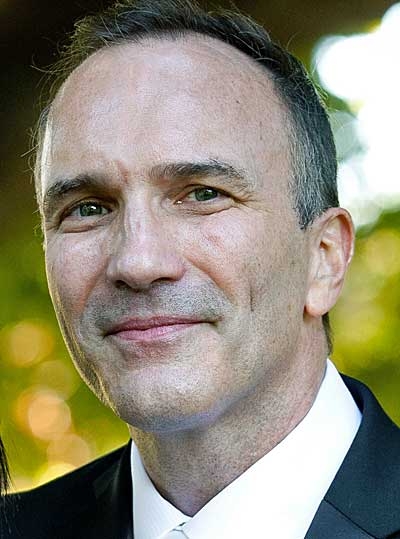The premier Medical Sensors Design Conference in Boston is attracting a diverse of medical professionals from doctors and surgeons to medical equipment designers and EOEMS. To give our readers and attendees, as well as other speakers and exhibitors, a quick pre-conference preview, we continue to present Q&A sessions with some of our notable speakers.
In the first two parts, I spoke with Dr. Suzanne Steinbaum, MD, attending cardiologist and the Director of Women’s Heart Health of Northwell Lenox Hill Hospital in New York City. She has done fellowship training in both Preventive Cardiology and Cardiology and is the author of Dr. Suzanne Steinbaum’s Heart Book: Every Woman’s Guide to a Heart Healthy Life. In part one, we heard from David Putrino, PhD, Assistant Professor of Rehabilitation Medicine at the Icahn School of Medicine at Mount Sinai.
In this issue, we get some insights from another area of the newly emerging medical markets. Mark Laich is the President of Laich Advisory Associates and is also VP of North American Sales at Blue Karma Security, a cyber security channel partner with expertise in email security, encryption, DLP, SIEM, firewalls, network access control, and backup solutions. On that note, let’s get down to business.

Mat Dirjish (MD): The Internet of Things (IoT), whereby almost everyone and everything will be connected to the Internet, is vastly becoming a reality. The medical community stands to be significantly impacted by this, with more patient monitoring devices connecting to the web and being controlled by smartphones and applications. This also aligns with the popular, and not particularly safe, practice of people self-diagnosing their symptoms using various medical websites. What do you foresee as being the most difficult challenges facing doctors and other frontline medical practitioners as a result of these phenomena?
Mark Laich (ML): Going to the doctor’s office or hospital is extremely inconvenient for patient care, so enabling consumers to self-diagnose any time/anywhere is an exciting development in healthcare. As with any disruptive change, however, there are many challenges.
From the healthcare provider perspective, the most difficult challenge is the need to integrate the results from multiple medical sensor products – most of which are point solutions that might monitor blood glucose level, for instance – to produce a comprehensive view of a patient’s health situation. And, of course, many treatment scenarios involve multiple healthcare professionals all of which must have access to, and be proficient with, these medical sensor systems. This is exacerbated by the rapid change in medical sensor technology expected over the coming years. So, doctors must keep track of it - on top of their already heavy patient care workloads - in order for medical sensor technology to realize its potential.
MD: What technological developments occurring now or are in the research stage that you feel will be most beneficial to patients? For example heart monitoring sensors for remote diagnostics, or other emerging technologies.
ML: On March 29, I attended a MIT Enterprise Forum event on Connected Health and there were several very interesting companies presenting their existing or emerging technologies. In the near-term, there are several systems that can monitor vital signs and/or activity that will provide immediate benefit to the patient/PCP relationship.
For instance, MC10 utilizing flexible circuits to create a band-aid-like application for sensor that can monitor a variety of functions. Or Humon, which has developed a wearable sensor to measure oxygen levels in muscles to optimize sports training. On a longer-term horizon, Neumitra is developing a system using embedded biomodules to measure and manage the autonomic nervous system to respond to stress which might lead to negative health or behavioral consequences.
MD: What technological developments occurring now or are in the research stage that you feel will make doctors and other diagnosticians’ jobs easier and enable faster and more accurate diagnostics and other procedures?
ML: The availability of affordable, clinical-grade remote diagnostic tools. For instance, Mobiosense is making an affordable heart disease monitoring to prevent acute heart attacks. Or Scenscio Systems, which utilizes a combination of sensors and Artificial Intelligence (AI) to provide healthcare professionals alerts to events that require action.
MD: As a speaker at the Medical Sensors & Design Conference, what is the most important concept you want to impart to the medical/engineering/sensor-centric attendees?
ML: The importance of recognizing the FDA and HIPAA regulatory compliance issues involving information security that need to be addressed with medical sensor systems. Information security must be designed into medical sensor systems to prevent breaches, which result in insurance fraud and/or the loss of PHI in order for the medical community to adopt these systems. This is particularly true of medical sensor systems, which utilize mobile devices to collect and transmit information, since mobile operating systems are prone to malware and data exfiltration.
MD: As an attendee of other sessions at Medical Sensors & Design Conference, what are the most important concepts and/or revelations you want to return home with a better grasp or knowledge of?
ML: To understand the alliances that can be forged between the medical sensor system and the cybersecurity industries to provide solutions that are both secure and non-intrusive to increase the adoption of these systems by the healthcare industry.
Mr. Laich shows us there are other important things to consider in healthcare along with choosing the right physicians and treatments. Protecting your privacy is just as important as monitoring your cholesterol levels. A breach of either could cause a heart attack.
Be sure to attend Mark’s session title IoT in Healthcare: Implementing Security & Privacy Safeguards on Monday, May 8, 2017 at 3:45 PM at Medical Sensors & Design Conference in the Boston Marriott Newton, 2345 Commonwealth Avenue, Auburndale, MA 02466. Attending will most definitely be in your best-health interests. ~MD